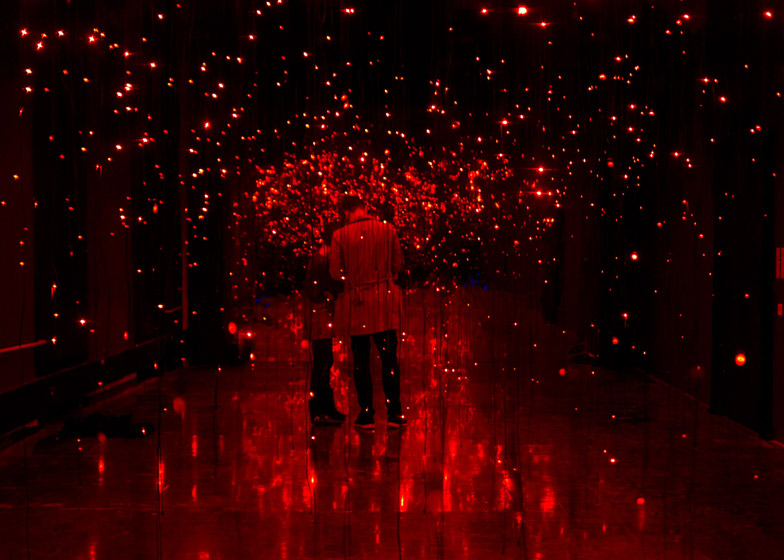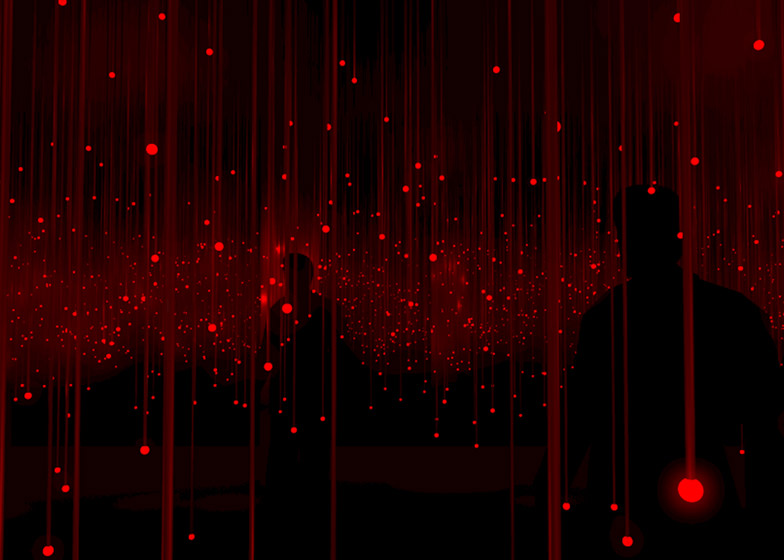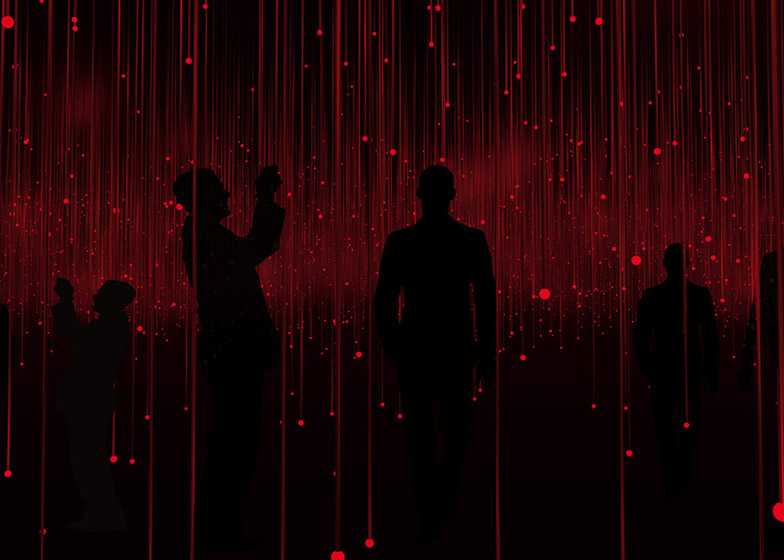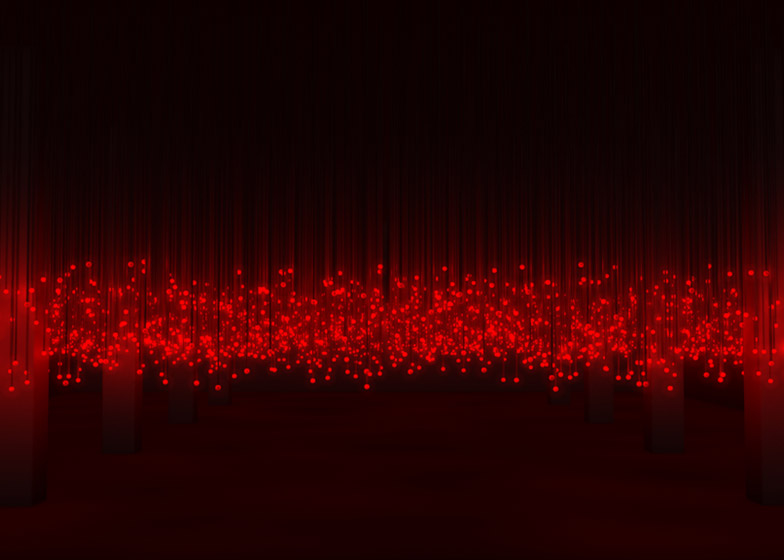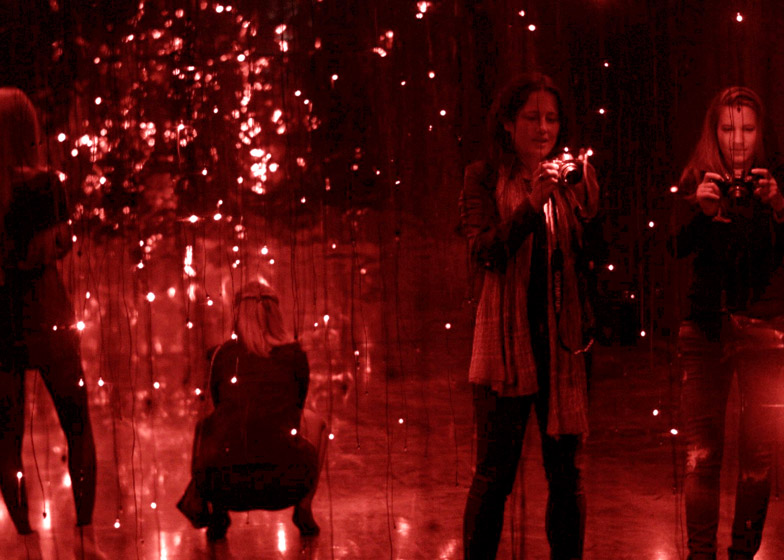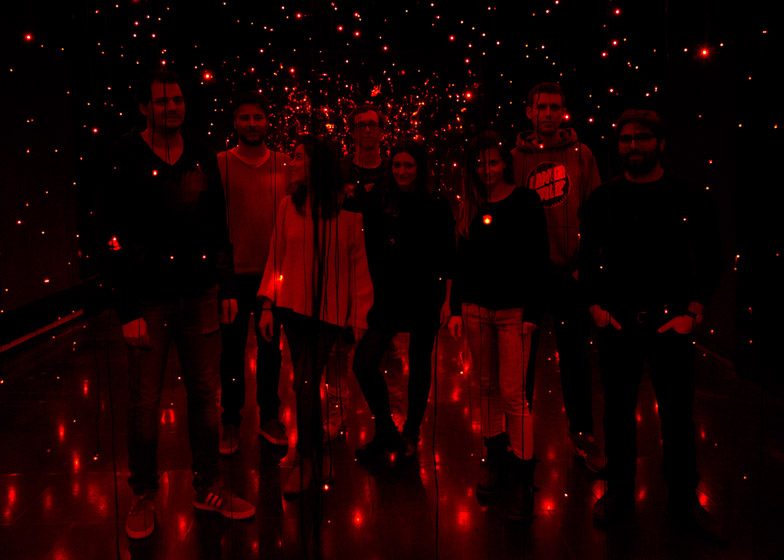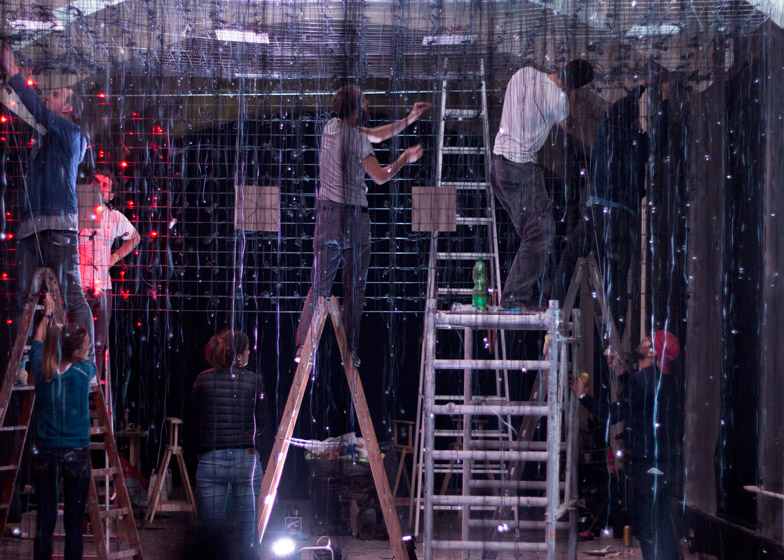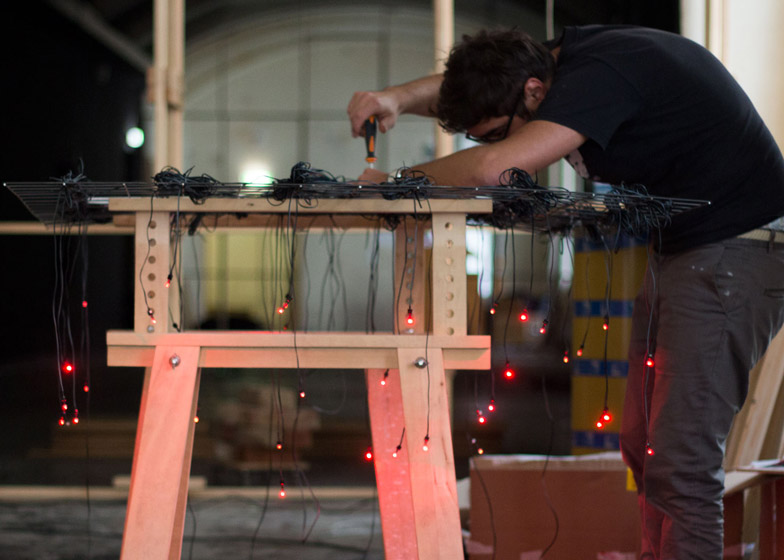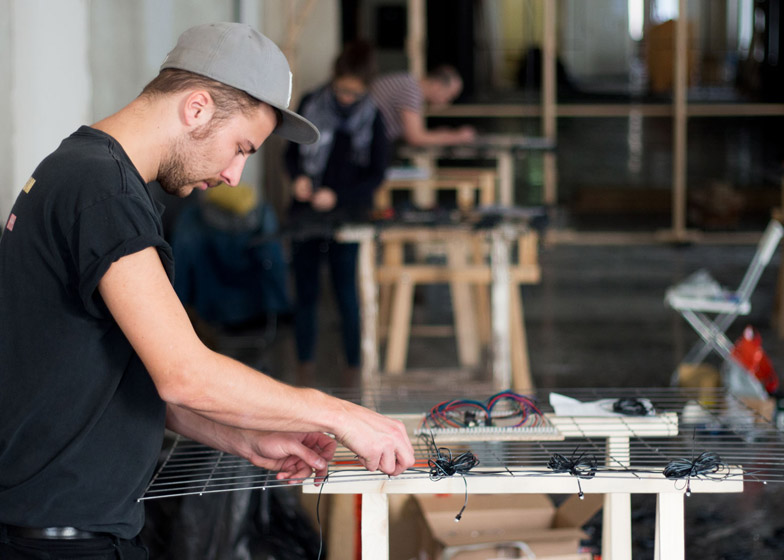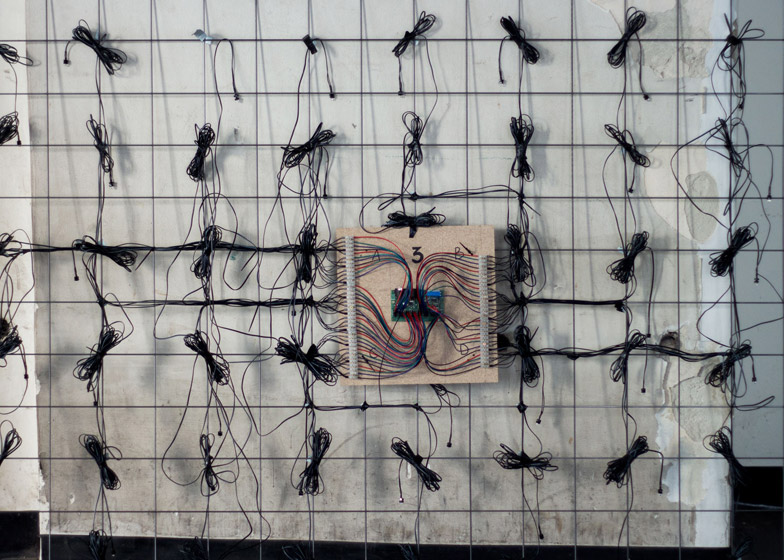Austrian arts collective Neon Golden has created an immersive light installation that mimics the movements of fireflies (+ slideshow).
Swarm features over 1,000 LEDs hung on wires from an overhead metal grid and arranged in a series of 40 modules throughout a dark space.
The lights use motion-sensing technology, controlled by Arduino and Raspberry Pi hardware, to replicate the motion of fireflies. The LEDs change position horizontally in response to the movements of nearby visitors.
The changing direction of the lights is based on coding used in the Boids software created by artificial-life simulation pioneer Craig Reynolds, which recreates the flocking and separation patterns of birds.
The piece made its debut at the Olympus Photography Playground in Vienna in February 2015 and attracted thousands of visitors. The space also hosted a performance from dancer Máté Czakó, which was choreographed and directed by Stefan Kainbacher.
Swarm can be adapted for different requirements, with the configuration of light modules able to be adjusted to smaller or larger spaces as necessary.
"The chaotic random structure holds against the formally structured digital and organised manmade world we live in," Neon Golden said in a statement.
"It proposes a techno-natural jungle that is the habitat of futuristic species of digital fireflies."
Based in Vienna, Neon Golden was founded in 2005 as "a platform for experimentation with media arts in the club context".
Bringing together 14 members from the fields of design, art, and programming, the group has experimented with live visuals, projection mapping and motion graphics, and is now turning its attention to more complex light structures.
Dutch designer Daan Roosegaarde also mimicked natural movements in his Waterlicht installation, which was designed to create the impression of a "virtual flood".
Roosegaarde's Lotus Dome piece was constructed from hundreds of light-sensitive flowers that opened in response to the movements of visitors.

